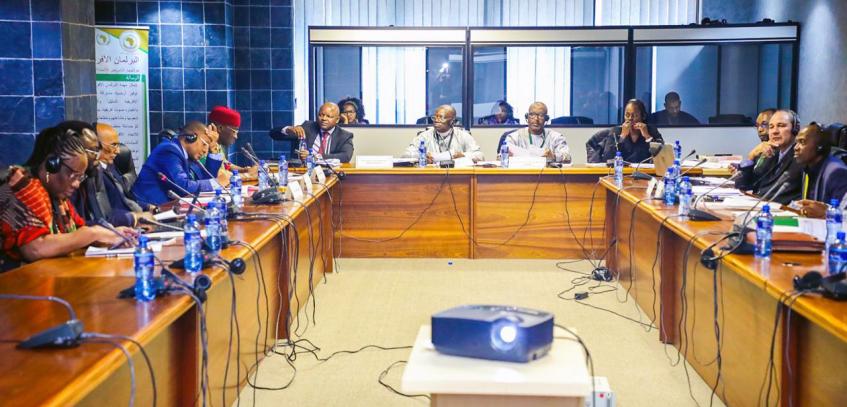The Committee on Monetary and Financial Affairs in the Pan-African Parliament is set to present the Draft Model Law on Cooperatives in Africa for adoption by the Parliament's plenary next week.
In partnership with the International Co-operative Alliance-Africa (ICA-Africa), the Committee held a meeting during the ongoing 3rd Session of the Sixth Parliament of the Pan-African Parliament in Midrand, South Africa. This Session is being held under the African Union Theme for the Year 2024, which focuses on Education. ICA-Africa Regional Director and CEO, Dr. Chiyoge B. Sifa, presented the final Draft Model Law on Cooperatives to the Committee.
In November 2022, the Pan-African Parliament Plenary approved a proposal by the Committee to develop a Model Law on Cooperatives. The Model Law is intended as a soft-law instrument that AU member states can use or adapt to guide lawmakers and policymakers on the governance and operations of cooperatives.
According to the Pan-African Parliament Guidelines on the formulation of model laws, the development of the Model Law on Cooperatives in Africa consisted of three major stages: the initiation stage, the formulation stage, and the adoption stage. The adoption stage includes the consideration of the draft Model Law in plenary and all subsequent consultations before the final adoption of the proposed Model Law.
The approval of the draft follows a consultative meeting held in Nairobi, Kenya, on August 29-30, 2023. Pan-African Parliament Officer Clement Mavungu highlighted the importance of adopting the Model Law, stating that it addresses, in a single document, most of the issues related to cooperatives that are sometimes governed by several scattered laws.
Mavungu further noted that the Model Law incorporates a human rights-based and developmental approach to cooperatives, combining rights, duties, and responsibilities with governance arrangements for coordination and effective implementation of cooperative principles. The Model Law will provide mechanisms not only for the state and its structures but also for the cooperative movement.
The Committee agreed that these reasons are compelling for the Law to be adopted and embraced not just by the Pan-African Parliament but also by member states. The Committee reviewed all detailed groups to address the laws, views, and amendments incorporated into the report.
The final step is for the Committee to review the report. If satisfied, it will be sent to the plenary for adoption, after which it will become an approved Model Law for the AU. Once approved by the AUC, the Committee will send it to the heads of state for adoption, making it a working document for the continent.
The Parliamentarians emphasized that although this seems like the final step for them, it is not. Even after the AU adopts it, they need to advocate for individual countries to adopt it. The Committee is confident that any nation facing challenges with its cooperative law will find that this new law, while not solving all problems, will address most of them.
Before concluding its meeting, the Committee also discussed the annual Pan-African Parliament budget for 2025 and the financial challenges facing the Parliament. On Tuesday, during the Committee's first sitting, resolutions were made to address the financial challenges, including improved communication with the African Union and timely submission of reports.
-Ends-








